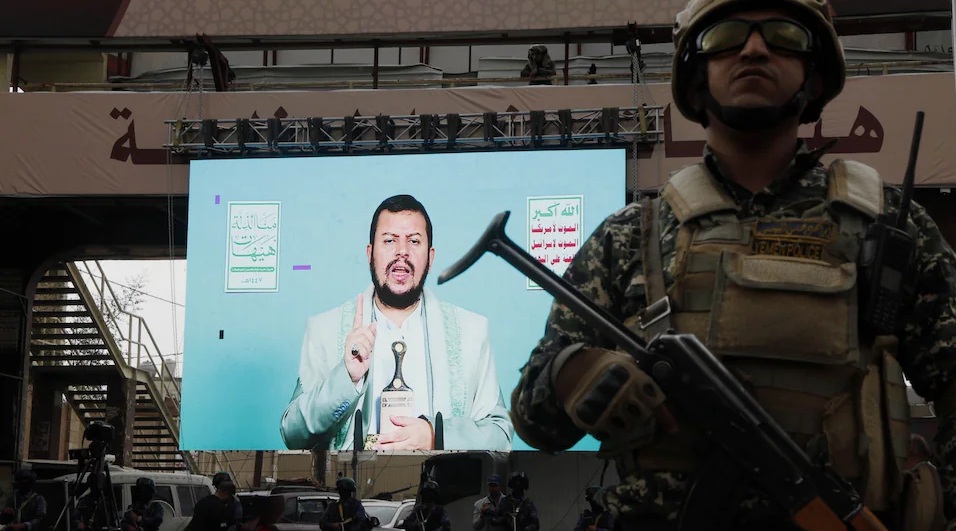Alwaght- "Israel does not know what to do with Yemen challenge." This is not mere rhetoric. It is one of the headlines of Israel's Haaretz newspaper that conveys the Israeli frustration with Yemen's attacks. Over the past three days, the Yemeni forces by firing several ballistic missiles at targets in the occupied territories have posed serious threats to the Israelis and showed that Yemen alone is capable of challenging the Israeli military. In such a situation, Israeli sources talk about Tel Aviv confusion on how to deal with challenge posed by Yemen.
The US raised white flag to Sana'a
On May 2, the US President Donald Trump announced halt of the attacks on Yemen. The US had started its air campaign against Yemen on March 15, but all of a sudden, Oman as the eastern neighbor of Yemen announced that it mediated to end the conflict between the US and Ansarallah Movement of Yemen.
But the end of the seven-week US war against Yemen did not mean the Yemenis surrendered, and the massive US and British airstrikes and the 53-day attacks by these two countries could not stop the Yemenis from attacking Israel in solidarity with Gaza. Finally, the Trump administration was forced to declare a ceasefire at great cost to its prestige and with the loss of three fighter jets— a ceasefire in which the Yemenis explicitly declared that they will not stop attacks on Israel and the deal was only with Washington.
Yemen involvement in Gaza war
About two months ago, Yemeni forces fired a long-range missile at Israel. Although Israeli air defenses detected the missile, it was not intercepted and fell near Ben-Gurion International Airport, creating a crater and injuring several people. The Israeli Air Force claimed at the time that the probable cause was a technical problem with the batteries used to strike the missile.
That attack was not the first or last attack by Yemeni forces on the Israelis. The Yemeni army has attacked Israel dozens of times in the past twenty months, as Israel’s war in Gaza has unfolded. The Yemeni army began its attacks on Israel after the Gaza war began by targeting southern Israeli ports and also attacking Israeli ships in the Red Sea, imposing a blockade on shipping to Israel.
To date, Israel has carried out at least eight rounds of airstrikes on Yemen, one of the largest of which was in response to the missile strike near Ben-Gurion Airport.
Despite the full air power of Israel, the US and Britain being used against the Yemenis, the Yemeni movement has proven to be very difficult to defeat in war. Even before that, the Yemenis had managed to resist the Saudi-led military coalition between 2015 and 2022, and it was ultimately Riyadh that accepted a ceasefire with Yemen.
Why is Yemen difficult to defeat?
In 2015, when Ansarullah formed a government in the capital Sana'a, Riyadh intervened militarily in favor of Ansarullah adversaries. The Saudis used fighter jets and modern US-provided ammunition in the war. But the Sana'a government and army not only resisted the heavy bombardment of Saudi Arabia and its allies, but also during the bombardment, they enhanced their military capabilities. For instance, as the war unfolded, Yemen developed ballistic missiles and drones.
In general, it can be said that the efforts to stop the Yemeni forces have so far failed for several reasons:
Yemen's missile capabilities: On the one hand, it should be noted that the Yemeni popular forces and the army have shown that they are capable of producing and deploying long-range missiles on Yemeni soil. Over the years, the Yemenis have stockpiled sufficient materials to manufacture missiles or have been able to obtain these materials through sea routes.
The size of Yemen: It should be taken into account that, given the considerable size of Yemen, the army of this country can hide its missile launchers and launch missiles from various locations. According to reports, the Yemeni army uses solid and liquid fuel missiles.
Drone capabilities: Yemenis' access to drones has also added to their operational capabilities. Today, the Yemenis have access to almost all types of drones. For example, the Shahed 136 drone was first seen in Yemen in 2021, and other combat drones are also at the disposal of the Yemeni forces.
Failure of Israeli air defense: In fact, Israel’s unsuccessful confrontation with Yemeni forces marks a larger challenge for Washington and Tel Aviv. The US and Israeli air forces have so far failed to suppress Yemeni forces, although the Israeli air force says it has been able to intercept more than 95 percent of the missiles fired from Yemen. This means that some Yemeni missiles continue to make their way into Israel. In other words, Israel’s air defenses or the bombing of Yemen have so far failed to beat the challenge Israel is grappling with.
Impossible boots on the ground: Moreover, sending ground forces into Yemen—whether by Israel or the US—is unjustified, given that history has shown just how difficult such an endeavor would be. In the 1960s, Egyptian forces intervened in Yemen to support the northern republicans against the Saudi-backed royalists, yet they failed to decisively defeat them. While the political landscape has changed since then, the geography has not. Yemen’s vast, rugged terrain makes any military campaign—even with ground troops—extremely challenging and costly. Neither the US nor Israel likely wants to stumble into another quagmire, easy to enter, but impossible to escape.



























